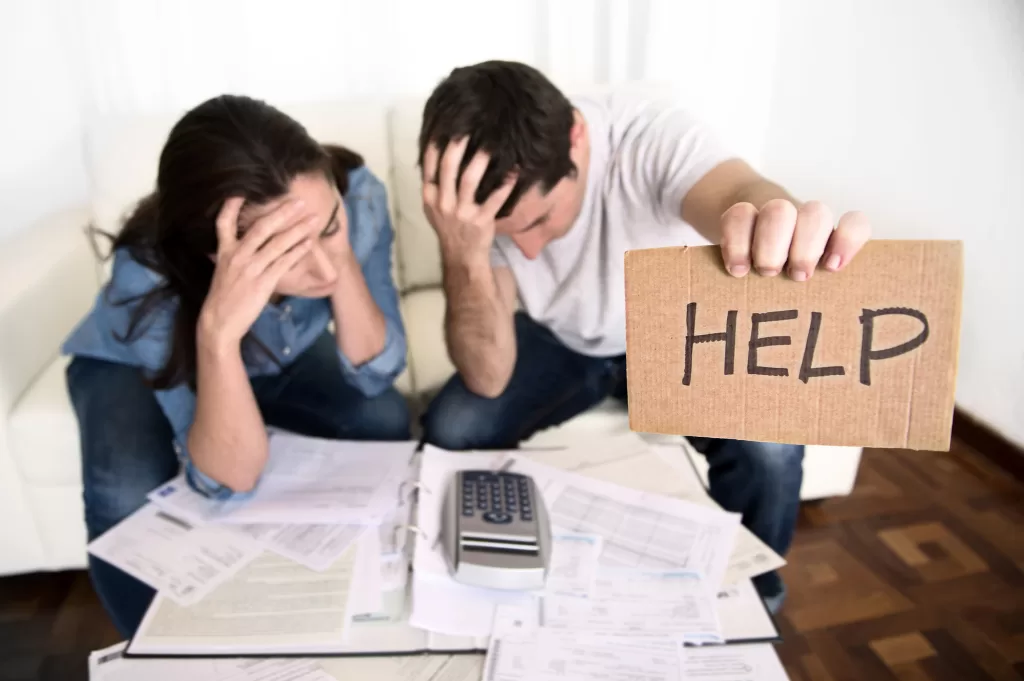Managing money can be hard, and people make mistakes without knowing it. These mistakes can cost a lot of money over time, and learning about them is important to avoid them.
This introduction will talk about common money mistakes. You might be making some of these mistakes right now. By understanding them, you can make better choices with your money. This can help you save more and have less stress about money in the future.
No Emergency Fund

One of people’s biggest financial mistakes is failing to build an emergency fund. Without one, unexpected expenses like medical bills, car repairs, or job loss can quickly spiral into debt, making it challenging to regain financial stability.
Related article: Build Your Emergency Fund in 5 Simple Steps
Living Beyond Your Means

Spending more money than you earn is a recipe for financial disaster. Credit cards and loans may temporarily bridge the gap, but the resulting debt can lead to a cycle of financial hardship. Don’t let your lifestyle inflate beyond your financial capabilities.
Related article: The No-Budget Easy Button To Wealth
Ignoring Retirement Planning

Many people delay saving for retirement, assuming they have plenty of time. The truth is, the earlier you start saving for retirement, the better your chances of building a comfortable nest egg. Failing to do so can result in a retirement filled with financial stress.
Falling Prey to Lifestyle Inflation

If your spending and income increase, that might be a problem if it’s not controlled. While enjoying the fruits of your labor is important, constantly upgrading your lifestyle can drain your finances and hinder your ability to achieve long-term financial goals.
Misusing Credit Cards

Credit cards can be useful when used responsibly, but overspending and carrying high balances can lead to excessive interest charges. Ignoring credit card debt can wreak havoc on your credit score and overall financial health.
Related article: How Credit Cards Can Save You Money
Not Having Insurance

Inadequate insurance coverage can leave you vulnerable to unexpected events like accidents, illness, or natural disasters. Failing to review and adjust your insurance policies regularly can result in costly gaps in coverage.
Not Budgeting

Budgeting is a fundamental aspect of financial management. Without a budget, you have no clear understanding of where your money goes, making it difficult to control spending and save for future goals.
Don’t want to budget? Check out the Pay Yourself First money trick. It works.
Skipping Financial Education

Many people lack basic financial literacy, leading to poor financial decisions. Taking the time to educate yourself about personal finance can help you avoid costly mistakes.
Co-signing Loans Without Considering the Consequences

Co-signing a loan for a friend or family member may seem like a noble gesture, but it can put your financial stability at risk if the borrower defaults. Remember that your credit is at stake too. Always carefully weigh the potential consequences before co-signing any loan.
Neglecting Estate Planning

Failing to create a will or establish an estate plan can result in confusion and disputes among heirs. Proper estate planning ensures your assets are distributed according to your wishes and can minimize tax liabilities.
Not Investing Wisely

Keeping all your savings in a low-yield savings account or not investing at all can result in missed opportunities for growth. Investing wisely, based on your financial goals and risk tolerance, is essential for building wealth over time.
Related article: A Beginner’s Guide to Index Funds
Accumulating Too Much Debt

While some debt is unavoidable, like mortgages or student loans, excessive debt can become unmanageable. High-interest debt, in particular, can drain your finances and hinder your ability to save for the future.
Forgetting About an Emergency Plan

Disasters can strike at any time, and not having a financial contingency plan can make a bad situation worse. Be prepared with an emergency plan that includes financial provisions for unexpected events. For instance, maybe keeping a little extra cash in a safe inside the home is a good idea. This is a part of your emergency plan.



